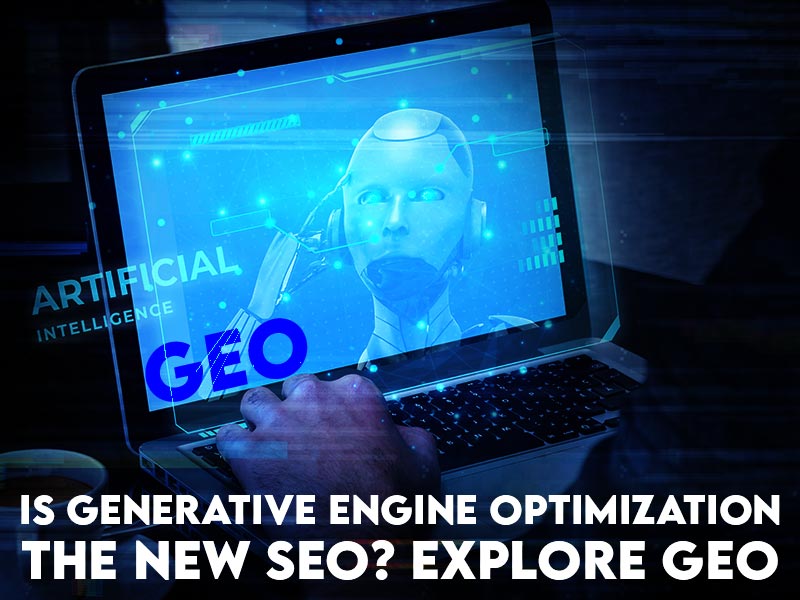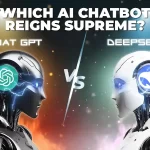The digital marketing world is constantly evolving, with new trends, tools, and strategies emerging every year. One of the most talked-about shifts is the rise of Generative Engine Optimization (GEO), a concept that is quickly gaining traction among digital marketers and business owners alike.
But is GEO the new SEO, or is it just a passing trend?
In this article, we’ll explore GEO vs SEO, its potential impact on digital marketing, and what it means for businesses looking to optimize their online presence.
What is Generative Engine Optimization (GEO)?
Generative Engine Optimization (GEO) refers to the process of using generative AI technologies to optimize content and websites for search engines.
Unlike traditional SEO, which relies on keyword research, link-building, and technical optimizations, Generative Engine Optimization leverages advanced algorithms and machine learning to create dynamic, personalized content that resonates with both search engines and users.
At its core, Generative Engine Optimization focuses on understanding and predicting user intent more effectively. By using tools like AI-powered content generators and predictive algorithms, businesses can tailor their websites to rank higher in search results, providing users with exactly what they’re looking for.
GEO vs SEO: How Do They Differ?
| Aspect | SEO (Search Engine Optimization) | GEO (Generative Engine Optimization) |
| Purpose | Improve website visibility and ranking through traditional methods | Improve visibility using AI to generate dynamic, personalized content |
| Method | Relies on keyword research, content optimization, backlinks, and technical SEO | Uses AI and machine learning to optimize and generate content based on real-time data |
| Content Creation | Content is manually optimized using specific keywords | AI-driven content generation tailored to user intent and search trends |
| Adaptability | Static adjustments based on pre-researched data | Dynamic adjustments in real-time based on changing user behavior and trends |
| Focus | Focuses on keyword ranking and site structure | Focuses on personalizing user experience and content relevance |
| Technology Used | Primarily manual techniques and traditional SEO tools | AI, machine learning, and predictive algorithms |
| Time Investment | Requires more time for manual optimization and content creation | Time-efficient with AI tools generating content at scale |
| Approach to Content | Focuses on optimization of existing content and site structure | Focuses on creating new, relevant content continuously |
| Scalability | Can be slower to scale due to manual intervention | Highly scalable with AI tools that generate content in real-time |
Generative Engine Optimization (GEO) is transforming digital marketing by using AI to create dynamic, user-centered content. Unlike traditional SEO, which focuses on keyword research and backlinks, GEO optimizes user intent and delivers personalized content that ranks higher in search engines.
Why Generative Engine Optimization Might be the Future of SEO?
As search engines continue to evolve, particularly with the introduction of AI-driven search technologies like Google’s RankBrain and BERT, traditional SEO methods are being stretched to their limits. Users now expect more than just keyword-stuffed content, they want personalized, high-quality, and engaging experiences. GEO is perfectly poised to meet these demands.
With GEO, marketers can create content that adapts to user intent in real-time, providing a much more personalized experience. By leveraging generative AI, businesses can generate fresh, relevant content at scale, keeping their websites optimized and engaging for both users and search engines
The Role of Generative AI in GEO
Generative AI is the backbone of Generative Engine Optimization. AI tools can create content that is not only optimized for SEO but also tailored to meet the needs and interests of users. These tools analyze vast amounts of data to understand how users search, what they want, and how they interact with online content.
As a result, GEO allows for more efficient content creation and optimization, reducing the need for manual intervention while increasing content relevance.
Moreover, with GEO, marketers can scale their content production without sacrificing quality. Instead of manually writing blog posts or landing pages, businesses can use AI to generate content based on data-driven insights. This results in a more agile and responsive approach to SEO.
How Can Generative Engine Optimization Help Businesses?
For businesses looking to maintain a competitive edge in the crowded digital space, GEO offers numerous advantages:
- Real-Time Content Adjustments: Generative Engine Optimization tools can automatically adjust content based on changing search trends or user behavior, ensuring that your content always stays relevant.
- Improved User Experience: By focusing on user intent, GEO can help create more engaging, personalized content that resonates with your audience.
- Efficient Content Creation: With AI-generated content, businesses can produce more content in less time, allowing them to scale their marketing efforts.
- Better SEO Performance: GEO’s dynamic approach to optimization ensures that your content remains optimized for search engines, giving you a better chance of ranking higher and gaining organic traffic.
Can GEO Replace Traditional SEO?
While Generative Engine Optimization is undoubtedly a powerful tool in the digital marketing toolkit, it’s unlikely to replace traditional SEO completely. SEO will always play a foundational role in optimizing websites, driving organic traffic, and building a solid online presence.
However, Generative Engine Optimization offers an innovative way to supplement and enhance SEO strategies, providing businesses with a cutting-edge approach to stay ahead of the competition.
At the best SEO agency in Mumbai, we understand the importance of staying ahead of the curve. If you’re looking to explore the future of SEO and implement Generative Engine Optimization (GEO) in your digital strategy, we’re here to help.
Contact us today to learn how we can optimize your business for the next generation of search!
Conclusion
As the world of digital marketing continues to evolve, Generative Engine Optimization (GEO) offers a glimpse into the future of SEO. By combining the power of AI and machine learning with the fundamentals of SEO, GEO promises to deliver highly personalized, dynamic, and engaging content that resonates with both users and search engines. While traditional SEO remains an essential strategy, GEO is quickly becoming a key player in the search optimization landscape. Stay ahead of the competition with PaperCraft, the best digital marketing agency in Mumbai. Let us help you navigate the future of SEO with GEO.




